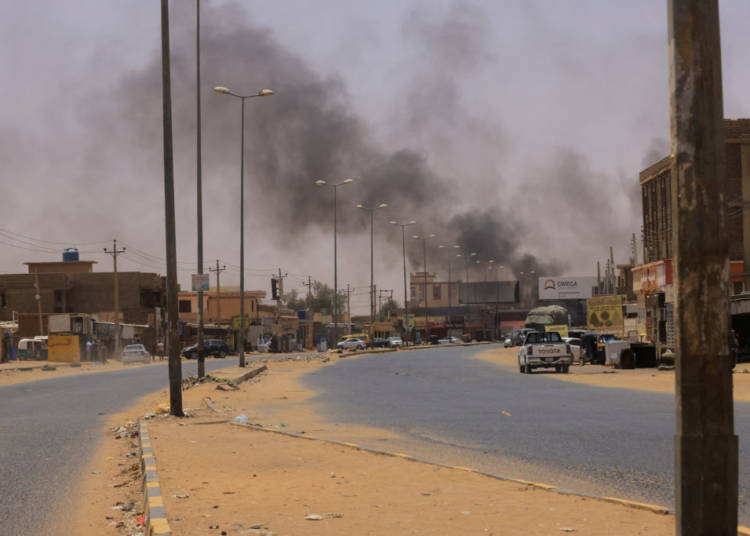Street battles were being fought by Sudan’s rival forces in the capital, Khartoum yesterday, in an escalation of violence despite calls for a ceasefire to mark the Muslim holiday of Eid al-Fitr.
The paramilitary Rapid Support Forces (RSF) said they had agreed to a three-day truce and several hours later the army did the same. But bombing, shelling and gunfire continued. At least 400 people have been killed in a week of fighting.
It is the result of a bitter power struggle between two factions of the Sudanese military leadership over how the country should be run.
A Sudanese employee of the UN’s International Organization for Migration has been killed in crossfire south of El Obeid, some 430km (270 miles) south-west of Khartoum, the agency says.
The army says it has deployed more weapons and soldiers to “comb” the streets looking for members of the rival paramilitary Rapid Support Forces (RSF).
Khartoum’s international airport is still closed but the European Union says it is planning for a possible evacuation of the 1,500 or so EU nationals in the city. Other foreign embassies – the US, UK and Japan included – have so far been unable to bring their citizens home.
Sudan Conflict: Federal Govt Urged To Evacuate Nigerian Students
Earlier yesterday residents in Khartoum said it felt like a ghost town, in stark contrast to the joyful mood usually seen during Eid.
People there and in the twin city of Omdurman told the BBC they were still feeling a mixture of shock and anger.
Two women crying at the entrance to a mosque explained they had lost several family members – including two children.
Sudanese people usually relish Eid as a time for visiting families and eating together with their neighbours, while children play and enjoy sweets.
Prayer services would normally be packed on Eid, but yesterday many mosques in Khartoum and Omdurman were almost empty as people sheltered at home. Others have fled the capital for their home regions.
At its heart, this is a power struggle between two powerful military men over the roadmap for returning the country to civilian rule following the 2019 coup that toppled long-time leader Omar al-Bashir.
As part of that plan the country’s current military government – made up of the army led by General Abdel Fattah al-Burhan and the RSF led by Mohamed Hamdan “Hemedti” Dagalo – were supposed to merge their forces.
But the RSF has resisted this change, and began to mobilise its troops which escalated into full-blown fighting between the two sides last Saturday.
Thousands of people have been injured in the past week but medical centres are overwhelmed and under-equipped to treat the influx of patients – the fighting has left 70% of hospitals in conflict zones out of service, according to the Sudan Doctors’ Trade Union.
Along with Khartoum, the western region of Darfur, where the RSF first emerged, has also been badly affected by the fighting.
“The situation is catastrophic – the majority of the wounded are civilians who were hit by stray bullets, and many of them are children,” said a Médecins Sans Frontières worker at the only hospital still functioning in Fasher town, North Darfur state.
The UN has warned that up to 20,000 people – mostly women and children – have fled Sudan to seek safety in Chad, across the border from Darfur.
BBC News











